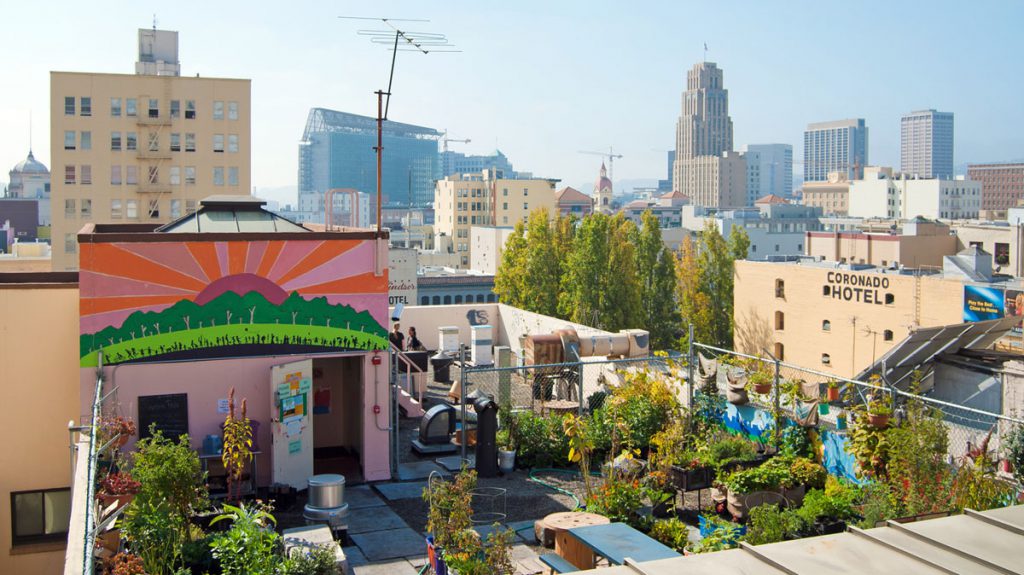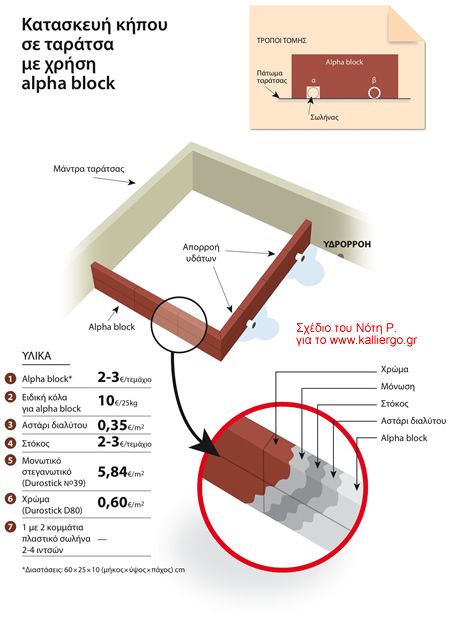Can I grow vegetables on balconies and rooftops even though modern cities seem to be a hostile environment for growing vegetables? Yes you can!
The idea of being able to grow vegetables in the city, on a balcony, or rooftop is appealing. We can take advantage of a space that already exists and perhaps goes unused and have our own fresh, tasty and healthy food.
The “re-discovery” of the sun, the soil, the rain, the wind, the seeds, the plants, the seasons, the cycles of nature and the cooperation between them will bring us closer to the Earth again, even though we will be looking at it from above.
Contact with nature in the city will give us peace, good mood, optimism and of course our own healthy and fresh food.
In fact, if we combine our new hobby and effort with the efforts of other neighbors who share the same interests wit us, we will be able to develop new social relationships and expand our social network. The effort and its results can be appreciated by neighbors and we can join them in this magical and fascinating journey.
Growing on balconies and rooftops – Set realistic goals
For our attempt to grow vegetables on balconies to be successful, we need to be honest with ourselves, set realistic goals and take into account any objective constraints.
Be honest with ourselves
We must first answer the question honestly: “Why do I want to grow vegetables on the balcony or rooftop?”
- Do I want to grow my own vegetables?
- Do I want to learn new things and am I ready to face failures and difficulties?
- Am I looking for a new hobby?
- Do I want to make alternative use of the space I already own?
- Do I want to develop sociability?
- Do I want to teach my children to love nature and learn that vegetables don’t grow on supermarket shelves?
- All of the above or something else?
That way, we will know in advance why we want to get involved in growing vegetables on balconies and rooftops. This will determine how much time and money we want and can invest in this effort.
We set realistic goals
We will need to go to the market again
If we want to be realistic, then we have to admit that growing vegetables on our balcony or rooftop will not ensure such a production that we will not have the need to buy vegetables from the market again.
Do not attempt to grow everything
So we should make use of the space we have available to us so that we can grow a variety of vegetables. But we should focus on the ones we like the most, and also the ones that can be grown easily in our area.
Take into account the financial costs
We should always keep in mind that if we don’t have pots, soil, fertilizer, etc., we will need to purchase them before we get started.
I am not mentioning seeds because they are very inexpensive.
Supplying these translates into costs. Call it an investment if you like.
How much money can we afford spending? How much money can we allocate without running out of the family budget? That’s how big our garden needs to be at the beginning. If everything goes well and we are satisfied, then in the following years we can invest more and grow our garden.
Ensure watering
As we know, watering is important for the survival of our plants.
If we can’t be around our plants all the time, then we should make sure to purchase and install an automatic irrigation system. This in turn requires a water supply (tap) on the balcony or rooftop.
Is there one? If there is, we are on the right track.
If not then you will need to personally take charge of watering the plants and commit to it. Do you have the time?
We take into account objective constraints
We check the stability of the building
To grow vegetables, on the balcony or rooftop, we will need to plant them in potted barrels, or window boxes.
The weight of the pots with the soil will add to the static load on the balcony or rooftop.
How much weight can our balcony or rooftop stand without problem?
This is a question we should take into serious consideration. Only an engineer after an inspection can give a responsible answer.
But we should not underestimate the weight parameter, especially if we plan to put in a lot of pots, plants and trees. We should limit the number of pots to the limits of the safety strength of the building.
Is there enough sun?
All plants, especially vegetables, need sun to grow.
Does our balcony or rooftop get enough sun? If we are lucky and there are no obstacles around us, then all is well.
But if there are obstacles blocking the sun, or we live on a low floor between apartment buildings, then we should choose to grow vegetables that have lower sun requirements or limit ourselves to growing herbs.
Is wind too strong?
We check to see if our area has strong winds. Plants like a breeze, but not strong winds that can destroy them.
If our area has strong winds, we should take protective measures. For example, we should put up protective cane or other wind breakers to cut off the wind’s force.
Vegetable garden on the rooftop? Do other tenants agree?
We make sure that creating a vegetable garden on the rooftop of the apartment building will not cause problems with the other tenants.
Is this allowed by regulations? Do the other tenants agree?
It is advisable to check this parameter if you plan to have your vegetable garden on the communal rooftop of the apartment building you live in.
Maybe your idea will appeal to the most distrustful and give new life to the generally disturbed relations between the tenants.
Advantages of vegetable gardens in apartment buildings
- We grow our own vegetables and know what we are eating.
- We enjoy the natural, fresh taste of vegetables.
- We gain a rewarding hobby.
- We improve our sociability.
- We beautify our balcony or rooftop.
- On the rooftop, plants create natural insulation.
- Additional plants in cities improve air quality.
Disadvantages of vegetable gardens in apartment buildings
- The vegetables produced end up costing more than those bought from the market.
- Urban farming requires a commitment on your part. Plants are living organisms.
In conclusion
My opinion is that if you can do it, it’s worth it.
Try to grow vegetables in the city! Use your balconies and rooftops and convert them to urban gardens!





